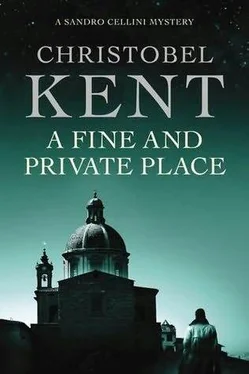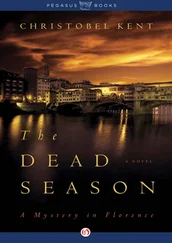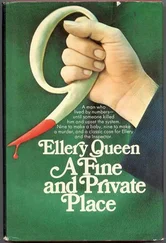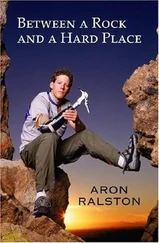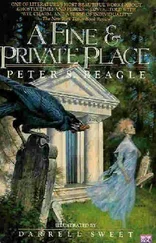Christobel Kent - A fine and private place
Здесь есть возможность читать онлайн «Christobel Kent - A fine and private place» весь текст электронной книги совершенно бесплатно (целиком полную версию без сокращений). В некоторых случаях можно слушать аудио, скачать через торрент в формате fb2 и присутствует краткое содержание. Год выпуска: 2011, ISBN: 2011, Издательство: Macmillan, Жанр: Криминальный детектив, на английском языке. Описание произведения, (предисловие) а так же отзывы посетителей доступны на портале библиотеки ЛибКат.
- Название:A fine and private place
- Автор:
- Издательство:Macmillan
- Жанр:
- Год:2011
- ISBN:9781429970808
- Рейтинг книги:4 / 5. Голосов: 1
-
Избранное:Добавить в избранное
- Отзывы:
-
Ваша оценка:
- 80
- 1
- 2
- 3
- 4
- 5
A fine and private place: краткое содержание, описание и аннотация
Предлагаем к чтению аннотацию, описание, краткое содержание или предисловие (зависит от того, что написал сам автор книги «A fine and private place»). Если вы не нашли необходимую информацию о книге — напишите в комментариях, мы постараемся отыскать её.
A fine and private place — читать онлайн бесплатно полную книгу (весь текст) целиком
Ниже представлен текст книги, разбитый по страницам. Система сохранения места последней прочитанной страницы, позволяет с удобством читать онлайн бесплатно книгу «A fine and private place», без необходимости каждый раз заново искать на чём Вы остановились. Поставьте закладку, и сможете в любой момент перейти на страницу, на которой закончили чтение.
Интервал:
Закладка:
The guests mostly seemed to be like that, migratory. Cate had listened in as she served dinner one night, early on in the current group’s stay, about where they would be going next. Visiting fellowship in Beijing, concert tour in California, creative writing course in Spain. It came as a revelation to Cate that people could exist in this permanent state of transit; it made her feel less of an oddity in fact. But even she assumed — hoped, if the truth be told — that one day the travelling would stop. Some day, surely, they would all arrive.
She’d heard the lift doors open; Tiziano. And slowly she’d shaken her head. ‘I’m not sure. Signore Gallo has called us to a meeting, eleven o’clock. The Dottoressa — the Director — she is — she isn’t here.’
‘Not here,’ Fairhead had said wonderingly. As though it might be something miraculous: and it did seem to Cate that Loni Meadows was everywhere in this castle, as a rule, even when she was away from it.
The wheelchair had glided through the doors, and Cate had felt her heart lift. Tiziano — from Venice, like his namesake, although not a painter but a pianist — was the only one who ever used the lift, which was commonly considered, not only by Ginevra, to be an antiquated deathtrap. By contrast Tiziano’s wheelchair was state of the art, like nothing she’d ever seen before he arrived in the castle some six weeks earlier. It was streamlined and bright, with tilted wheels, gleaming chrome and black rubber, and he could move like lightning in it when he wanted to.
Cate had fallen in love with Tiziano the moment he first beamed that wide, white smile up at her from his broad, stubbled face. Not muchhair, a good fifteen years older than Cate, but there was something about him. Broad-shouldered, he was always in T-shirts, never a sweater; he kept himself warm, he said, manoeuvring the wheelchair. Tiziano was always in motion, and for twenty years he had been paralysed from the waist down. An accident, in which his father had died. So fiercely private, so capable, she didn’t want him to think she even considered his disability: she hadn’t asked him about the accident. They had offered him a live-in helper at the castle, but he had refused.
Tiziano played the piano like a tumultuous force of nature; most evenings, Cate would come and stand at the foot of the stairs and listen when she heard him begin, until Ginevra called her back.
‘ Buongiorno, bellissima ,’ Tiziano had said, winking up at her. Cate couldn’t stop herself smiling.
He’d known very well he should be speaking in English, but Tiziano was as adept at disobeying rules as he was at circumventing obstacles to his wheelchair. He’d seemed exactly as cheerful as always; Cate’d supposed he had heard nothing of the police visit.
The two Americans — the women — weren’t here yet. They both lived in the outbuildings of the castle, and were often late, and they were as unlike as chalk and cheese, though it didn’t stop them sticking together. Tina — who made strange, graphic pots, stuck with leaves and detritus, a kind of Caribbean folk art — was from Orlando, in Florida. She was shy and slight, although some of her pots were as big as Greek oil jars and needed some manhandling.
As she knew Miami a little from the cruises, Cate had tried to talk to Tina once or twice about Florida, but it was hard going; Cate had come to the conclusion she was simply homesick. She was supposed to produce a little show, next week; there had been some talk about it from the others, but not from Tina. She was jumpy about it. She’d started slipping into the little room next to the dining room to watch the castle’s only television and catch the news every night; news of the world outside.
Then there was Michelle from Queens, New York, who lived out of choice in the modern studio behind the laundry building, with her long, unkempt grey-blonde hair and air of perpetual whirlwind fury.Cate, walking past the wide windows of Michelle’s apartment one day with an armful of tablecloths from the laundry, had seen her hunched bodily over the long white table and writing furiously, like a child hiding her work from the class cheat. She’d seemed to sense Cate there, and had turned on her a blinding glare.
Michelle was a poet and a librettist, which, Cate knew, was someone who wrote the words for operas. She’d read her poetry early on in her residency, stonily, challenging her audience to comment. Cate wondered about the presentations; most of the guests seemed to dread them, when it came to their turn. Michelle was childless.
Tina didn’t drink coffee and half the time she didn’t turn up at all; when she did, she sipped a brew of her own, made of boiled-up Chinese herbs. She inhabited the small villino , divided now into an apartment on the first floor and a workshop below, where Mauro had grown up, although his family had never owned it. A tied house: Mauro’s father before him had been the castle’s gardener and factotum, but the tied house had lapsed on his death and the creation of the Trust. The office in Baltimore, established proudly by old Orfeo, setting his faith in American reason and logic and justice, got blamed for an awful lot around here. The villino was only five minutes away, at the end of a stunted avenue of cypresses planted by Mauro’s father and sadly neglected.
Michelle sometimes went to see Tina late at night; Cate had seen the two of them walk down between the cypresses, and some days Cate suspected she stayed over there. It had a spare bed.
‘I should go,’ Cate had said, now feeling nervous. She knew she could leave them together. Tiziano seemed to like the Englishman so perhaps they would want to talk. In fact the Venetian was good at getting on with everyone; Cate could not claim any special friendship with him.
She’d been almost out and home free, when she’d heard it, on the stairs, a commotion. A bellowing, like a charging beast.
‘It’s her, isn’t it? Where is she?’ Coming from up above her so it could only be Per Hansen, but his voice had been hardly recognizable. ‘What’s happened to her?’ Could he be drunk? He did drink, glass afterglass some evenings and never a sign of being actually drunk. But at this time in the morning? He’d leaned over the banisters, his sandy hair sticking up, his bushy fair eyebrows even wilder than usual, and Cate had seen that he was alone. He must be talking — shouting — to himself.
She’d fled.
Five minutes later, the staff — Mauro, Anna-Maria the cleaner, Nicki, Cate and Ginevra — had all gathered in the dining room.
Luca Gallo stood at the head of the dining-room table, a piece of paper in his hands that he kept folding and unfolding.
‘I’m very sorry to tell you,’ he said, and for a moment he stopped as though unsure of how to proceed. He looked as though he really was sorry; his twinkling eyes were dull and distracted, and his cheerful, bearded face was for once sober with shock. He started again, and this time he spoke for ten minutes, and no one said a word; they all just stared.
Dead.
‘Last night — between here and Pozzo Basso. On her way to Pozzo. Some time around midnight.’
The dining room suddenly seemed to grow cold. Everyone stood very still, not sure of what to do next.
An accident. She always drove too fast; for a seasick moment on hearing the words Cate had seen the dark road as though through a windscreen, coming up to meet her.
As always, Luca took the initiative. ‘We must continue our work as usual,’ he said, in answer to the unspoken question. ‘We must carry on: this is an unfortunate accident, a terrible accident — but we can still function.’ He leaned forwards, both hands flat on the table, his ardour revived. ‘The guests have another month here, and they have their work to do. We have ours.’
Читать дальшеИнтервал:
Закладка:
Похожие книги на «A fine and private place»
Представляем Вашему вниманию похожие книги на «A fine and private place» списком для выбора. Мы отобрали схожую по названию и смыслу литературу в надежде предоставить читателям больше вариантов отыскать новые, интересные, ещё непрочитанные произведения.
Обсуждение, отзывы о книге «A fine and private place» и просто собственные мнения читателей. Оставьте ваши комментарии, напишите, что Вы думаете о произведении, его смысле или главных героях. Укажите что конкретно понравилось, а что нет, и почему Вы так считаете.
